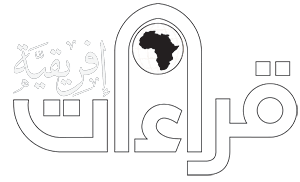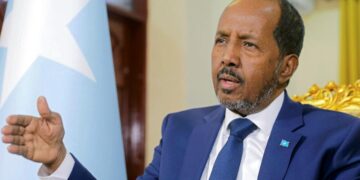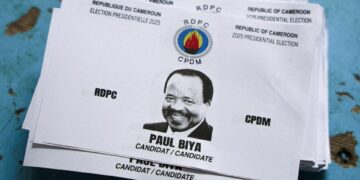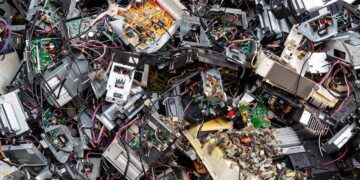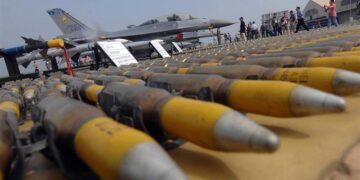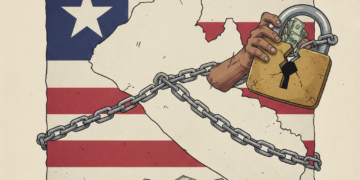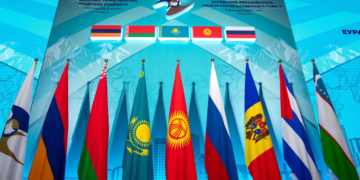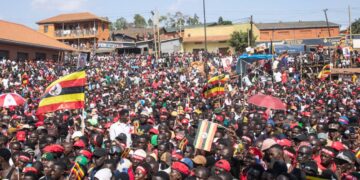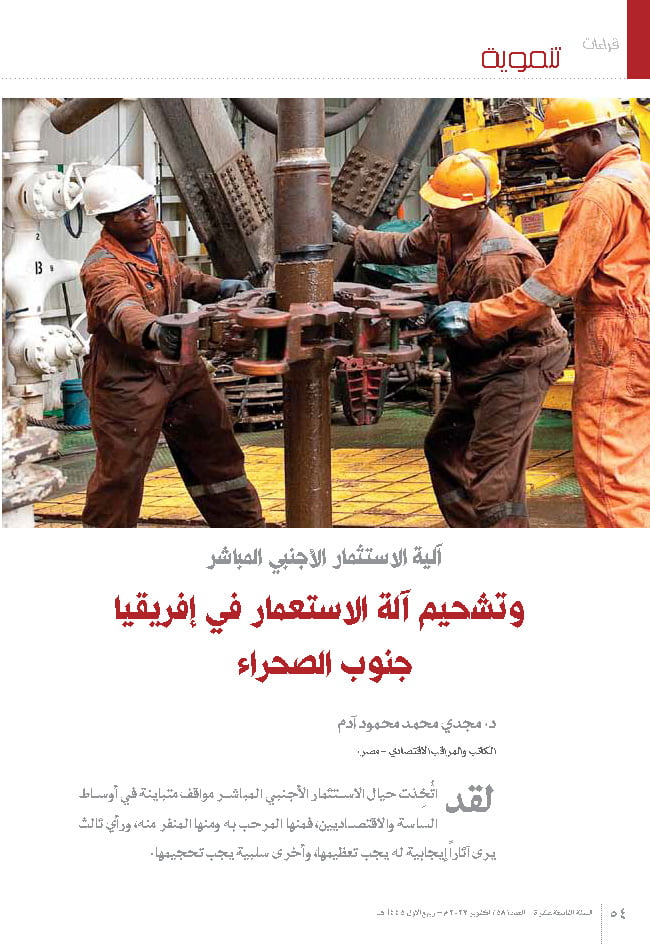Abstract: The imperialist powers did not escape their former colonies, without leaving behind them, whether their investment policy in infrastructure from the taxes of Africans, or the elites that inherited the rule, or through the preparation of international institutions of indirect rule. All of this put African countries in the mold of specializing in the production and export of commodities and primary raw materials, in a relationship of commercial investment dependency, involved in a neoliberal system that monopolizes goods and exports crises. Foreign direct investment used to flow into Africa to reap certain wealth, and extract its profits, leaving a deficit in the balance of payments, which did not provide job opportunities or technology, destroying local industries and crafts, disrupting production, and causing a budget deficit. It is calculated only as happy numbers when it enters, to appear in bad growth rates. , It does not have real repercussions on development, although it is positive in numbers in many cases. Foreign direct investment provides foreign exchange for importing what was previously exported, raw, at many times the price. The relationship of the former colonizer had several roles in seizing investment opportunities, in partnership with the Comprador elite, and in reducing institutional distance. And using the stick at times and the carrot at other times to acquiesce in the former colony on its investment policies, which was practiced by most of the former colonial countries, and the new superpowers such as the United States. However, China was more subtle, as it benefited from the mistakes of others, so it was at the forefront of investors in a new colonial relationship, and both remained the main source of incoming capital and the leading trading partner. With the flight of capital in cases dominated by whites, and its preservation of a presence in the local market. from regional and preferential markets. It also had a negative impact on the integration process on the continent. Foreign direct investment was a mechanism to lubricate the old colonial machine.
الملخص: لم تُفلت القوى الامبريالية مستعمراتها السابقة، دون أن تترك أذنابا لها، سواء سياستها الاستثمارية في البنى التحتية من ضرائب الأفارقة، أو النخب التي ورثتها الحكم، أو من خلال التجهيز لمؤسسات الحكم غير المباشر الدولية. كل ذلك وضع دول افريقيا في قالب التخصص في إنتاج وتصدير السلع والمواد الخام الأولية، في علاقة تبعية استثمارية تجارية، منخرطة في نظام نيوليبرالي يحتكر الخيرات، ويصدر الأزمات. كان الاستثمار الأجنبي المباشر يتدفق لافريقيا ليحصد ثروات معينة، ويُخرج أرباحه تاركا عجزا في ميزان الدفوعات، لا يوفر فرص عمل ولا تكنولوجيا، قاضيا على الصناعات والحرف المحلية فيعطل الانتاج فيحدث عجزا في الميزانية . يحتسب فقط كأرقام مفرحة عند دخوله، ليظهر في معدلات نمو سيئة النًسَب، ليس لها انعكاسات حقيقية على التنمية ،وإن كانت إيجابية بالأرقام في الكثير من الأحيان.يوفر الاستثمار الأجنبي المباشر نقد أجنبي لاستيراد ما تم تصديره خاما في السابق بأضعاف الأثمان. كان لعلاقة المستعمر السابق أدوار عدة في اقتناص الفرص الاستثمارية، بالشراكة مع النخبة الكومبورادورية، وتقليل المسافة المؤسسية. واستخدام العصا تارة والجزرة تارة أخرى لإذعان المستعمرة السابقة على سياساتها الاستثمارية ، وهو ما مارسته أغلب الدول الاستعمارية السابقة، والقوى العظمى الجديدة كالولايات المتحدة. غير أن الصين كانت أدهى فقد استفادت من أخطاء الآخرين فكانت في مقدمة المستثمرين في علاقة استعمارية جديدة ، وكلاهما ظل المصدر الرئيس لرأس المال الوافد والشريك التجاري الرائد.مع هروب رأس المال في الحالات التي يسيطر عليها البيض، واحتفاظه بالتواجد في السوق المحلي. مع استفادة الجميع من الأسواق الاقليمية والتفضيلية. كما كان لذلك أثر سلبي على عملية التكامل في القارة. فكان الاستثمار الأجنبي المباشر آلية لتشحيم آلة الاستعمار القديمة.
